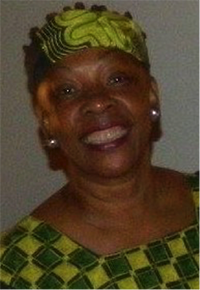Blackwood-Meeks, Dr. Amina
Symposium in the Memorial Lecture Series for Alphonsus ‘Arrow’ Cassell
“Storytelling: A Powerful Tool for National Development”
KEYNOTE ADDRESS: Forgetting Weself: Hari Kari

Dr. Amina Blackwood-Meeks currently serves as College Orator and Lecturer in Caribbean Cultural Identity at the Edna Manley College of the Visual and Performing Arts. She is a political scientist, cultural studies specialist, educator, award-winning actress, writer, director and acclaimed performer of children’s plays and contemporary stories for adults and children.
She founded and directs Ntukuma, the Storytelling Foundation of Jamaica, a cultural not-for-profit NGO, dedicated to exploring the connections between the ancient wit and wisdom of the African oral tradition as well as Ananse SoundSplash, the annual storytelling festival/conference in Jamaica. As Director of the Culture In Education Programme from 2005-2015, she contributed to the Culture and Education sector plans in Vision 2030, Jamaica and developed the “Teachings of Garveyism” in the New National Civics Programme (2012) as well as the Civics Curriculum for schools in Jamaica (2014). She was instrumental in having November 20 proclaimed as National Storytelling Day in Jamaica and the last Friday in February as Jamaica Day in schools.
ABSTRACT
In 1987, via his very successful song, Hari Kari, Calypsonian King Short addressed the ways in which the choice of Caribbean peoples to consume illegal drugs, in spite of the visible detrimental consequences, amounts to self-destruction. The consumption of the negative aspects of cultures outside of the Caribbean and the disregard for traditional nurturing of Caribbean cultural forms and practices is another arena in which this is manifested. Using the case of storytelling and the 2017 CARIFESTA in Barbados, this presentation will examine some of the ways in which this veritable hari kari is enabled by public national and regional institutions in spite of their stated missions or mandates. The talk will show how this choice is facilitated through the ways in which we have been taught to yield cultural hegemony and disregard that which reflects the African heritage of the vast majority of the citizens of the Caribbean.
It will also highlight how the purely mathematical computations of the value of culture support this self-destruction, inhibit the growth of cultural industries and remove future generations from their cultural inheritance.